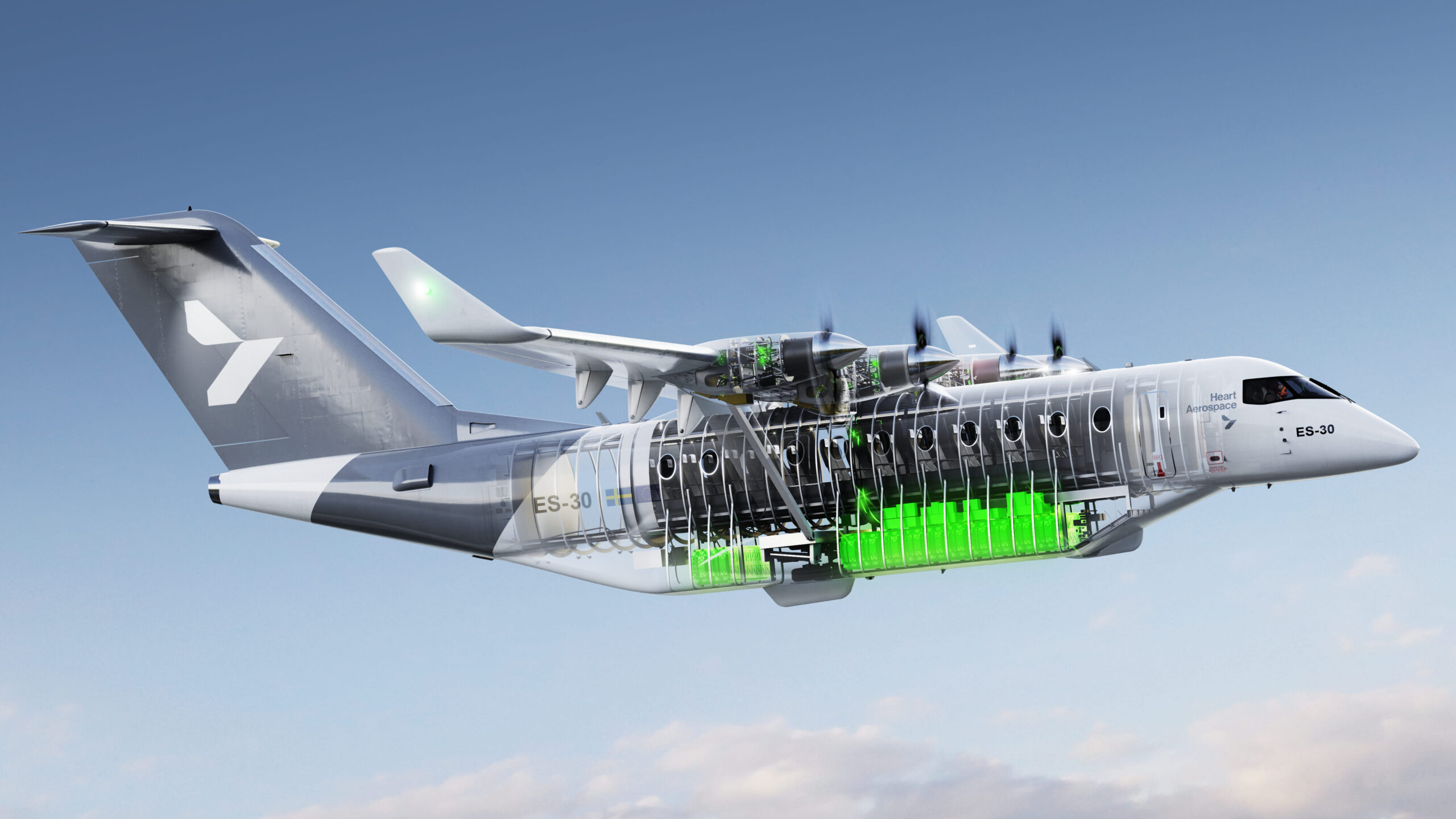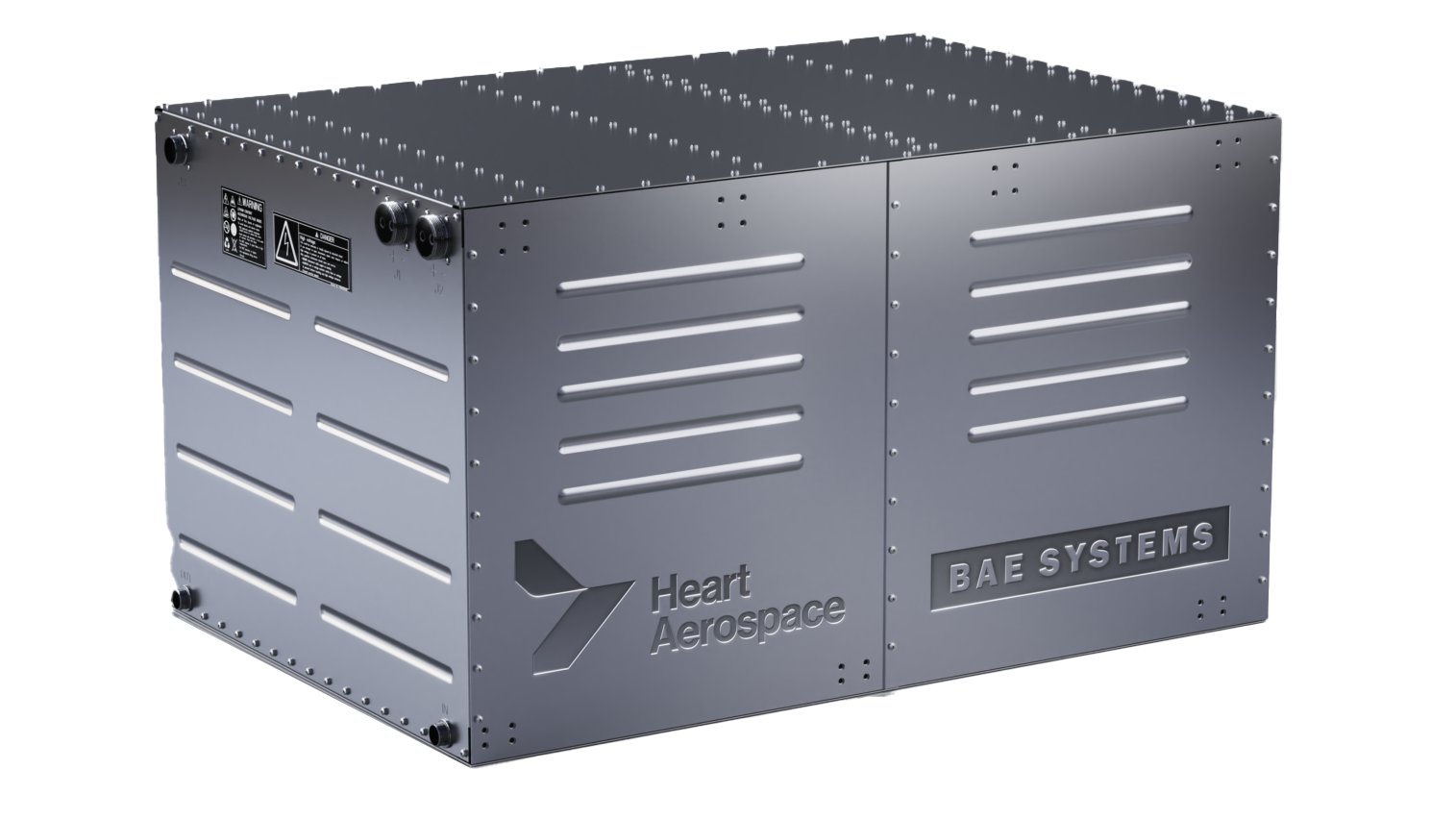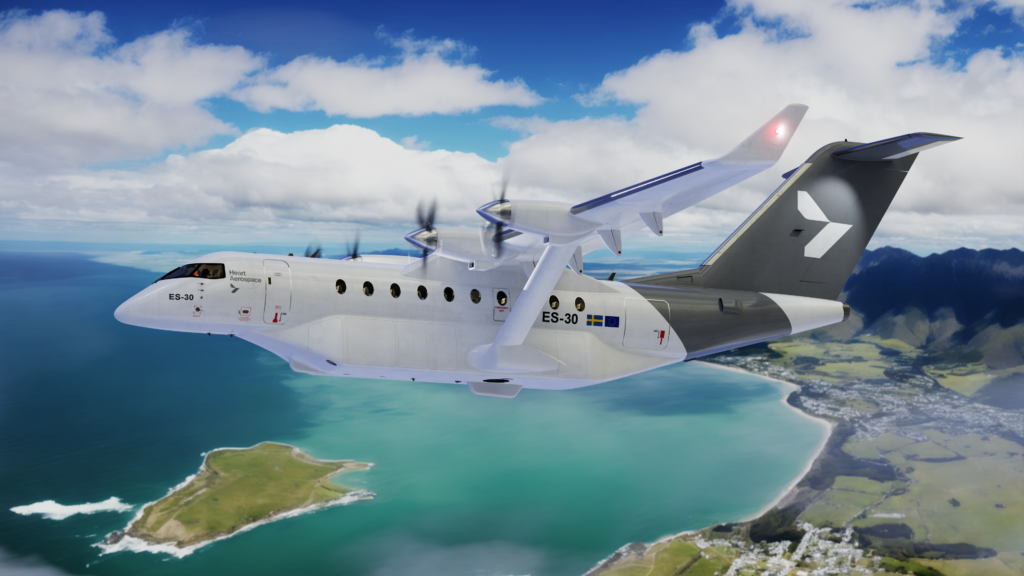Electric planes keep on getting bigger
- PostedPublished 18 October 2023
Heart Aerospace has announced a collaboration with BAE Systems to develop new batteries for the Swedish electric aircraft manufacturer’s ES-30 aeroplane.

This 30-seat hybrid-electric regional aircraft replaces previous plans for a 19-seater called the ES-19. Although a proof of concept is planned for 2024, service entry will now happen in 2028 instead of the original 2026 target date.
Heart Aerospace’s ES-30 electric plane features four electric motors to power its flight and has an all-electric range of 200 kilometres. A planned backup hybrid turbogenerator, powered by sustainable aviation fuel, could extend the aircraft’s range to 400km with 30 passengers or the ability to fly up to 800km with 25 passengers.
These numbers attract attention. The ES-30 has received renewed interest from existing customers Mesa Airlines and United Airlines, which between them have ordered 200 aircraft.
Heart has also revealed two new shareholders: Air Canada, which has placed an order for 30 aircraft and Saab, which came onboard as a supplier while offering consultancy on manufacturing and certification. Both have also invested US$5 million in the program.

“The ES-30 is an electric airplane that the industry can actually use,” said Heart Aerospace founder and CEO Anders Forslund.
“We have designed a cost efficient airplane that allows airlines to deliver good service on a wide range of routes.”
The ES-30 will be more than twice as heavy as ES-19, with a 30.7-metre wing span that is about a third larger. Its maximum take-off weight is 21,000kg, of which 5000kg is batteries. The ES-30’s fuselage is 22.7 metres long, a 5.2-metre increase over the smaller ES-19 aircraft.
According to Heart, the new batteries from BAE Systems will be the first of their kind to be included into an ‘electric conventional take off and landing’ (eCTOL) aircraft that can use standard runways.
“BAE Systems’ extensive experience in developing batteries for heavy-duty ground applications, and their experience in developing safety critical control systems for aerospace, make them an ideal partner in this important next step for the ES-30 and for the aviation industry,” said Heart Aerospace chief operating officer Sofia Graflund.

Because electric motors and batteries, as opposed to combustion engines, power eCTOL aircraft, they produce substantially less noise and are seen as a simpler, cleaner alternative to traditional fossil fuel powered planes, due to the lower cost of electricity.
As upcoming battery technology develops, the ES-30 will also have an affordable and scalable upgrade path, as it allows for more usable energy to be produced at the same weight.
This will lead to longer flying times and more route alternatives, together with the creation of a stretched fuselage variant capable of carrying even more passengers.
- CategoriesIn SightGlass
- Tagsaeroplanes, electric aeroplanes, SightGlass News Issue 30

